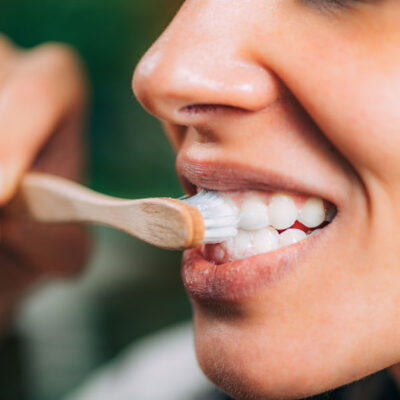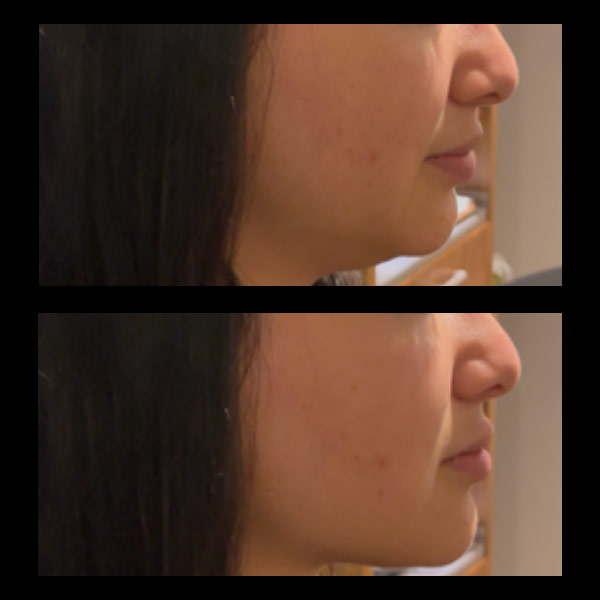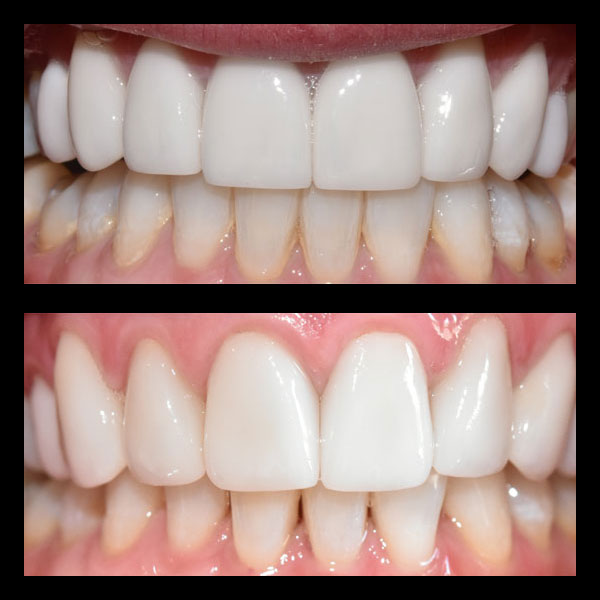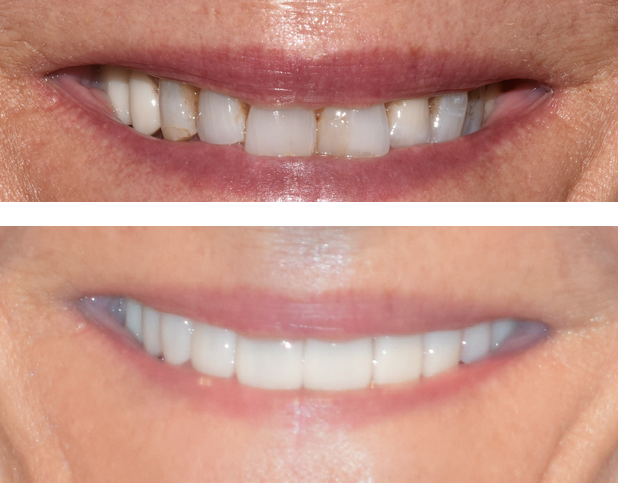 Eager to boast a healthy, beautiful smile? While many assume this requires a hefty investment in treatments or products, there are some great and inexpensive strategies to ensure optimal oral health.
Eager to boast a healthy, beautiful smile? While many assume this requires a hefty investment in treatments or products, there are some great and inexpensive strategies to ensure optimal oral health.
Good oral hygiene encompasses routine practices like brushing and flossing, as well as consistent dental check-ups and cleanings. Your dental health is influenced by more than these habits; it’s also significantly affected by nutrition, hydration habits, and tobacco use.
This handy guide recounts eight practical, cost-effective strategies for maintaining optimal dental health. Whether you’re aiming to enhance your existing dental health routine or starting from scratch, these insights can help to shape informed dental health decisions.
1. Establish an Effective At-Home Oral Hygiene Routine
Good oral health starts at home. A consistent routine is key to preventing dental issues and maintaining dental health. It’s easier than you think. Brush your teeth for two minutes, twice a day. Incorporate flossing into your routine. It’s especially important to brush before bedtime to eliminate the day’s buildup of plaque and bacteria.
Flossing helps to reach those tight spaces between your teeth that the toothbrush alone just can’t handle. This reduces your risk of cavities and gum disease. After floss, we recommend using a Waterpik. It’s best to go slow, on a medium setting, taking time to get between all of your teeth. The Waterpik effectively cleans and also massages the gums, stimulating healthy gum tissue. Plus it feels great!
This simple routine can protect your teeth from decay and strengthen your enamel. Think of your at-home oral hygiene routine as a daily investment in your oral health. Remember, prevention is the best strategy for maintaining a healthy smile!
2. Enhance Your Dental Care with Mouthwash
Incorporating a fluoridated mouthwash into your daily oral health routine can elevate your dental health. It’s a valuable extra defense. Beyond refreshing your breath, this rinse offers benefits like remineralizing your teeth, strengthening your enamel, and fighting harmful mouth bacteria.
Using mouthwash is simple. Swish it around your mouth for around 30 seconds, then spit it out. Do this twice daily after brushing and flossing, and remember not to swallow it. We also recommend putting a small capful in your Waterpik, to help reach those tough to get stpots. Avoid eating or drinking for 30 minutes post-use to allow the fluoride to work effectively on your teeth. We recommend mouthwash that incorporates fluoride, a tooth-strengthening ingredient, into the mixture. Not all mouthwashes have fluoride so be sure to check the ingredient list!
While mouthwash is not a substitute for brushing and flossing, it’s a beneficial addition. It can reach areas in your mouth that brushing or flossing might overlook, helping you maintain thorough oral health.
3. Reduce Sugar Intake
Sugar can be a sweet treat. However, it is very harmful to your teeth. Bacteria in your mouth thrive on sugar, transforming it into acid that damages your tooth enamel and leads to cavities. By consuming less sugar, you fuel these harmful bacteria less, reducing your risk of decay.
But limiting sugar isn’t just about cutting back on candies and chocolate. Sugar lurks in unexpected places such as bread, cereals, and fruit juices. Checking food labels for hidden sugars, like fructose, glucose, and sucrose, can significantly improve your dental health.
After indulging in a sweet snack, rinse your mouth with water or brush your teeth to remove any lingering sugar. However, wait at least 30 minutes after eating to prevent brushing away softened enamel.
While it’s unrealistic to eradicate sugar entirely, moderation and mindful consumption are key. By limiting your intake and making smarter choices, such as swapping soda for water or choosing sugar-free gum, you can enjoy life’s sweetness without compromising your dental health.
4. The Role of a Balanced Diet in Your Oral Health
Our diet significantly influences our oral health. Much like our bodies, our teeth and gums require a mix of nutrients to function properly.
Calcium is essential for healthy teeth, strengthening tooth enamel that acts as a protective guard against decay. While dairy products like milk, cheese, and yogurt are excellent calcium sources, leafy greens such as kale and spinach, along with almonds, also contain this vital mineral.
Vitamin C, found in abundance in fruits and vegetables, supports gum health. It strengthens gums and oral soft tissue, safeguards against gingivitis – the initial stage of gum disease, and aids in faster gum healing. Consuming vitamin C-rich foods like oranges, strawberries, peppers, and broccoli can boost your gum health.
So remember, when planning your next meal or snack, what benefits your body will also benefit your teeth! Your diet can be your first defense against tooth decay and gum disease. It’s not just about avoiding harmful foods but also about including the right nutrient-rich foods for a healthy, radiant smile.
5. Stay Hydrated for Better Oral Health
Hydration isn’t only crucial for your overall wellbeing–it’s also a key player in oral hygiene. Water is ‘nature’s mouthwash’, and rinses off food particles and harmful bacteria from your teeth, reducing the risk of tooth decay and gum disease.
Moreover, water helps maintain optimal saliva levels in your mouth. Saliva is your body’s primary defense against tooth decay. It neutralizes mouth acids, protects your gums, and fights germs. Thus, regular hydration ensures a constant supply of this natural oral defense.
Fluoridated water is an excellent addition to your oral hygiene routine. Fluoride, a naturally occurring mineral, strengthens your teeth and helps prevent cavities. Many tap water sources are fluoridated, meaning drinking tap water not only hydrates you but also enhances your oral health.
6. The Impact of Tobacco on Dental Health
The use of tobacco in any form significantly compromises your dental health. Whether it’s cigarettes, cigars, or smokeless tobacco, it presents serious risks. The chemicals in tobacco are strongly related to gum disease, tooth decay, and even oral cancer. The likelihood escalates as the duration of usage extends.
Tobacco harms your teeth and gums by reducing saliva flow, your mouth’s natural bacteria defense. This can cause dry mouth, bad breath, and eventually tooth decay. Additionally, tobacco increases the risk of gum disease which can ultimately lead to tooth loss.
Moreover, tobacco users face a higher risk of oral cancer. Symptoms may be subtle, such as a persistent sore or a change in how your teeth fit together. These changes can rapidly escalate and become life-threatening if not detected early.
While quitting tobacco can be difficult, it’s worth the effort. Within days of quitting, improved blood circulation allows your gums to begin healing. Over time, your risk for dental problems dramatically decreases.
7. Choose the Right Dental Tools
Your oral health depends on the right dental equipment. A good toothbrush can make a huge difference. At Incredible Smiles, we recommend using a soft bristled brush to protect your gums. Toothbrushes with small heads are also great because they can reach all areas of your mouth.
An electric toothbrush is a wonderful investment. They’re often more effective at removing plaque than manual ones. Remember to replace your toothbrush or toothbrush head every 2-3 months, as the bristles wear out with use over time.
Dental floss is another essential tool for removing food particles and plaque from places your toothbrush can’t reach. Choose floss that’s comfortable for you. Some people prefer waxed floss because it slides easily between the teeth, while others prefer unwaxed floss.
Choose a fluoride toothpaste and mouthwash to clean your teeth. These products work together to strengthen tooth enamel, help prevent cavities, and reduce the risk of gum disease, making them excellent choices for daily oral care.
A tongue scraper can also be a great addition to your dental care routine. It removes bacteria and dead cells from your tongue, promoting fresher breath and better oral health. While a toothbrush can clean your tongue, a scraper often does a more thorough job.
Remember, expensive doesn’t always mean better. Concentrate on the product’s worth, rather than its cost. High-quality doesn’t necessarily equate to high-cost. It’s about finding the right balance between cost and effectiveness.
8. Why Regular Dental Check-Ups are Essential
Keeping your teeth healthy doesn’t have to break the bank. Regular dental check-ups enable your dentist to monitor your oral health closely, catching any issues early. At Incredible Smiles, we use a range of tools and techniques to examine your teeth, gums, and mouth, identifying problems you might miss.
Dental check-ups include professional cleanings, which are not just beneficial but necessary. Despite daily brushing and flossing, removing plaque and tartar build-up is an uphill task. Professional cleanings reach areas that are often missed by regular brushing and help prevent gum disease and cavities by thoroughly eliminating harmful build-up. We use the latest products and technology to make the experience comfortable for guests, ensuring that each visit not only contributes to your oral health but is also as stress-free and pleasant as possible.
So remember, engaging in routine professional dental care helps maintain your teeth devoid of plaque, thereby preventing the onset of tooth decay and periodontal disease. Your dental appointments play an essential role in keeping your oral health in check, ensuring a vibrant and healthy smile.
Boost Your Oral Health Today
Keep your smile radiant without breaking the bank. With the implementation of some of these easy and cost-effective tips, your dental health can be attained. We’re committed to providing cost-effective solutions tailored to both your needs and budget. Tackle small issues early to stop them from spiraling into costly major problems. Take control of your dental health and schedule a complimentary consultation with Incredible Smiles.








